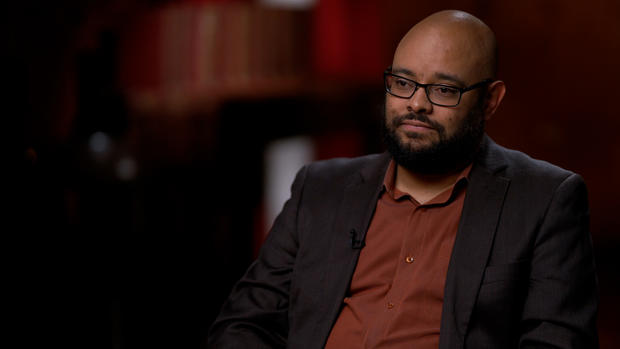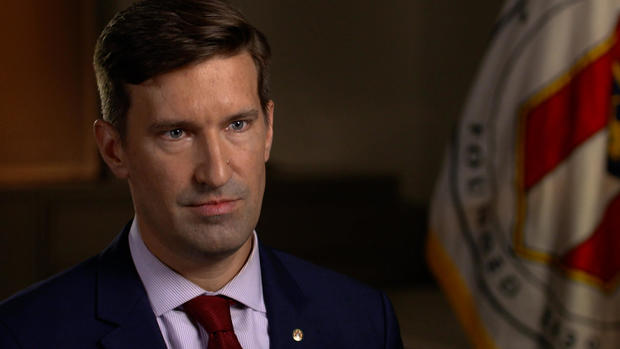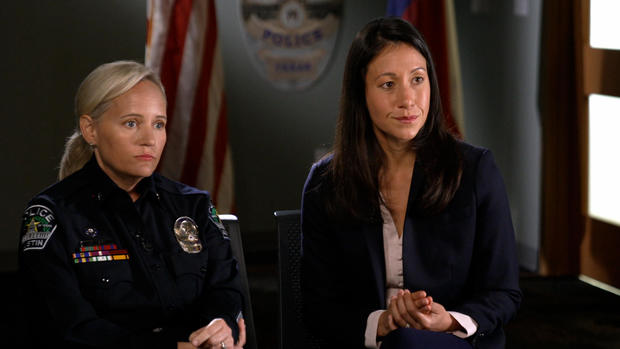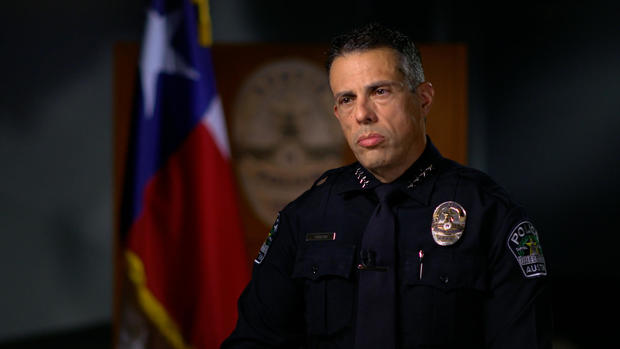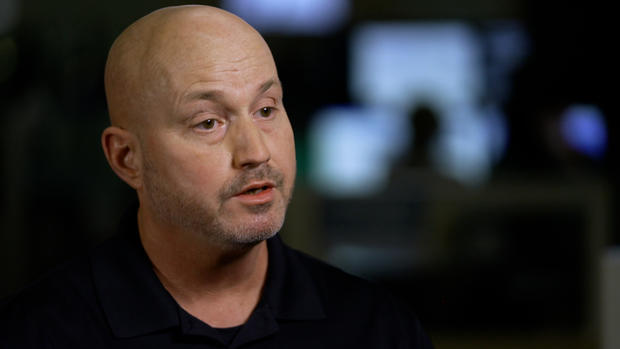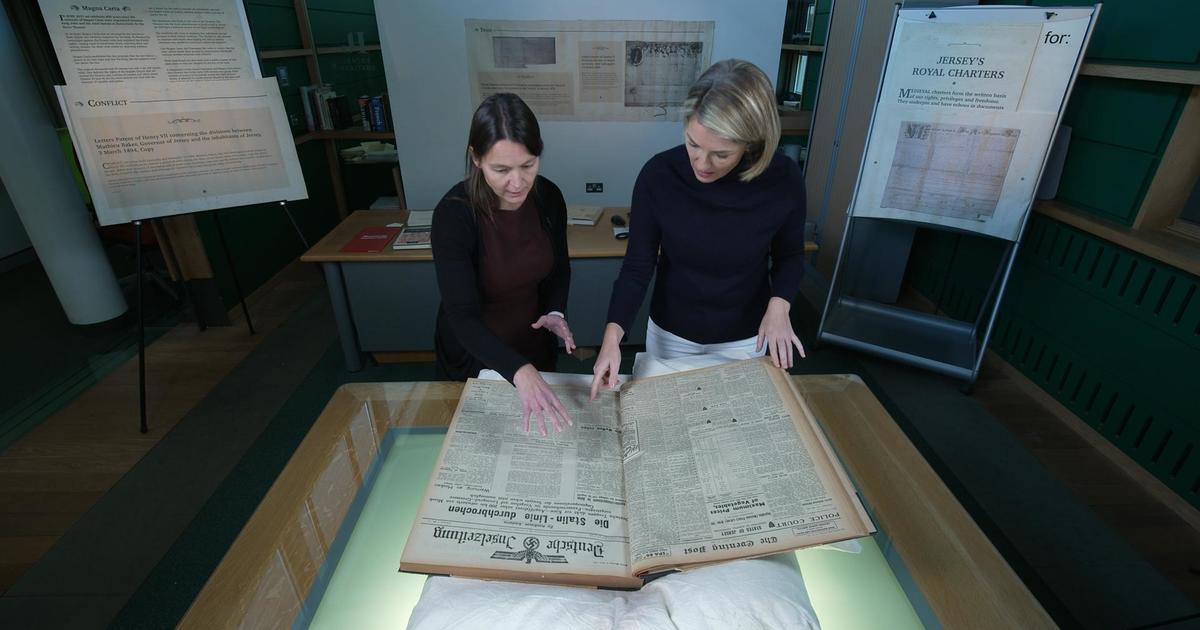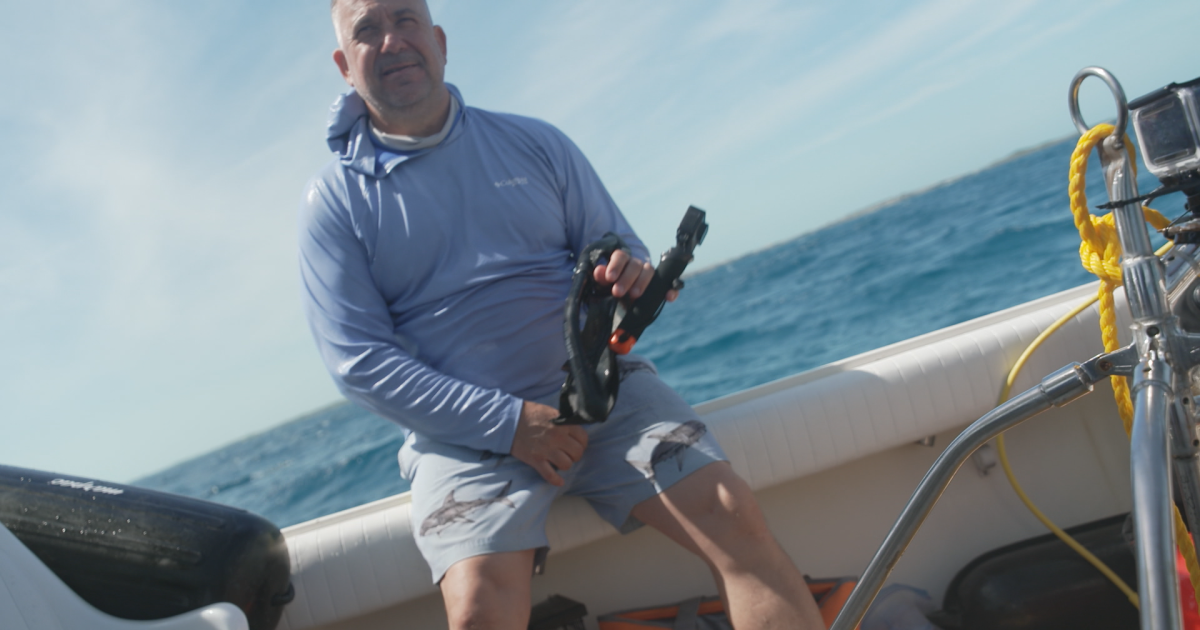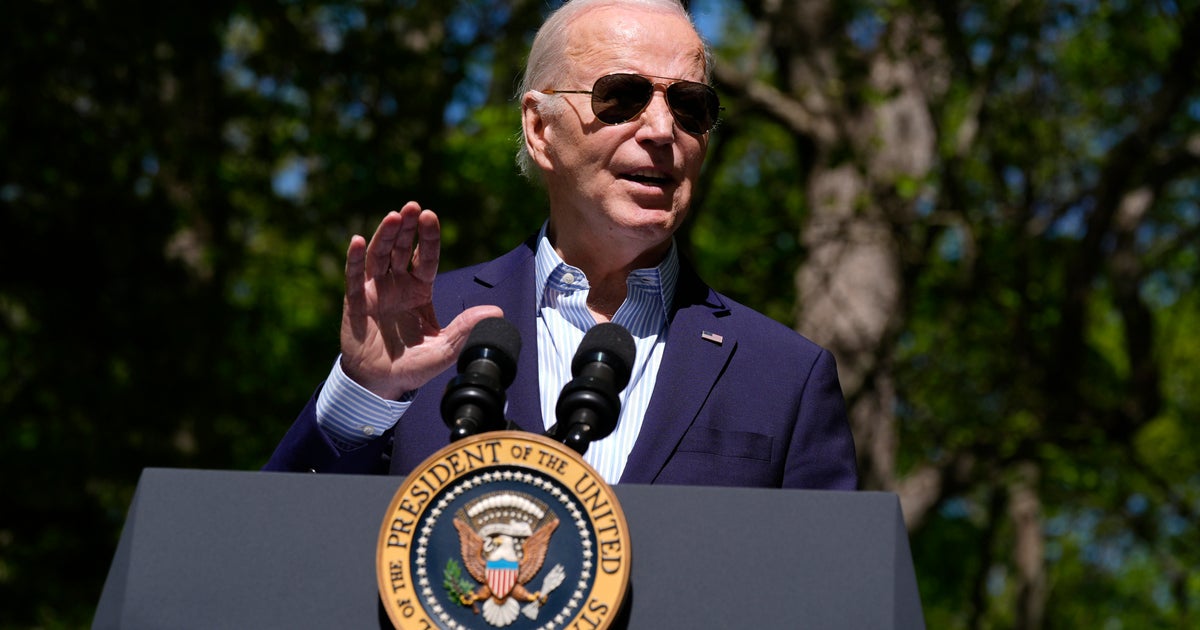Reimagining police departments with safety and justice in mind
This past week, the Kyle Rittenhouse trial was a sharp reminder of 2020's summer of protest against police violence. After a police shooting of Jacob Blake in Wisconsin last year, Rittenhouse, then 17, shot and killed two demonstrators and wounded another. Jacob Blake's shooting came not long after the police killings of Breonna Taylor and George Floyd. Protests pitted supporters of "defund the police" against those who "backed the blue." And with a significant rise in violent crime, progress on reform stalled. But Philip Atiba Goff sees a way forward. He's a Yale social scientist who's been advising police departments for 14 years. Goff's work has shown that justice and safety can be found in cities that are reimagining police.
Philip Atiba Goff: We focus on making policing less deadly, less racist, and often, just less present. And we leverage data and behavioral science to do all of that. Because oftentimes a scientific process is one you can trust when you can't trust each other.
Philip Atiba Goff is a professor of African American studies with a Ph.D. In psychology. He's CEO of the Center for Policing Equity which analyzes police data, 911 calls, arrests and traffic stops, to help cities reduce racial disparity and the use of force. Las Vegas is one example.
Scott Pelley: Las Vegas Police Department came to you. What was their question?
Philip Atiba Goff: Las Vegas Metro, they said, "We think we might be using too much force." I said, "Why do you think that?" They said, "Cause our community tell us so." I said, "That's a good indication."
Goff discovered most use of force in Vegas came after foot chases.
Philip Atiba Goff: So literally, they started training their officers, you're high on adrenaline, you slow it down, you count to ten, don't touch the person till the backup shows up. They dropped their use of force by 23% the next month. And it stayed low and it became a national model for training in foot pursuits.
In Berkley, California, Goff found the largest racial bias was in low-level traffic stops, like broken tail lights. So, Berkeley stopped enforcing minor violations.
Philip Atiba Goff: The places where we work, we see about a 26% reduction in use of force after we were there. Don't know how much of that was us, but all the things they tried together, about a quarter, right, of the use of force goes away. But in this moment, what we're getting asked for is something different. Not how do we make policing better but how do we remove policing from the places where we have abandoned communities, and so we ask police to punish people who we've abandoned for generations. That's the thing that's coming next.
To see what's coming next, we went to the capital of Texas. Professor Goff is not advising Austin, but this liberal city of one million is far along in police reform — even against the reservations of the conservative state legislature.
When George Floyd was murdered in Minneapolis in 2020, Austin was already smoldering over two police killings of its own. Two cops are charged with murder in shootings, nine months apart, of a mental patient and an unarmed man who was Black and Latino. In a demonstration in July, an armed Black Lives Matter protester was shot and killed by a man who drove his car into the March.
The shooter is charged with murder. At the peak of the unrest, the city council voted unanimously to cut the police budget 25% — about $150 million. The idea was to prevent crime — give police less to do — by spending the money on addiction, mental illness and homelessness. Austin called it "reimagining public safety."
Philip Atiba Goff: Law enforcement is not gonna prevent the violence. They're gonna respond to it. And if what you want is less violence, you want prevention.
Scott Pelley: When people hear about reimagining the police, that seems to come under the slogan of defunding the police. I think many people look at that and think, "My community's gonna be less safe."
Philip Atiba Goff: I think there are communities where that's absolutely true. Of course, you would be. But we've defunded the schools in those communities. We've defunded mental health. We've defunded the actual hospitals. We've defunded the jobs. We've defunded the housing system. We've defunded the grocery stores. What if instead of talking about just defunding police, we talked about refunding to the communities those areas where we've taken all the resources and the public goods away? If we did that, how much safer do you think we would be? The reason why people are so allergic to the idea of less police is they can't imagine a world where we take better care of the people who are vulnerable.
But arguments like that didn't carry the Texas legislature.
Republicans passed a law preventing any cuts to police budgets in large cities.
Scott Pelley: The state government at the capitol has told you you cannot reduce the police budget.
Spencer Cronk: Correct.
So, Austin City Manager Spencer Cronk put the money back in the police budget.
Scott Pelley: What does that do to your plan?
Spencer Cronk: I think it doesn't do much to be honest because this plan has never been just about resources. This plan has always been about How do we think differently about providing public safety to our community?
Now cronk is spending the money differently within the police budget. He's undeterred, perhaps, because before Austin, he ran the city of Minneapolis. He left two years before George Floyd was murdered.
Spencer Cronk: It is one of those times in which you know that things have to change.
Cronk started that change by shutting down the Austin Police Academy for a year to rewrite the curriculum.
Scott Pelley: Do you find yourself being taken seriously around here?
Anne Kringen: You know, I would say it varies?
Anne Kringen, with a Ph.D. in criminal justice, was hired to overhaul the academy. She was once a cop in Virginia and now runs the just-reopened academy alongside 22-year veteran Commander Catherine Johnson.
Catherine Johnson: This class is the most diverse in Austin Police Department's history and we want to ask them, and we do ask them, if they want to be a part of the change.
'That change' toned down the academy's military style boot camp you can see in these pictures from 2012.
Now, there's plenty of rough and tumble, but the new curriculum emphasizes de-escalation in violent situations. There's a course on the history of race and policing, plus visits, in plain clothes, to meet and hear from Austin's Black, Brown, Asian, and LGBTQ communities. And there are lessons from those nine and a half minutes that defy explanation.
Scott Pelley: You're training the cadets to intervene if they believe an officer's doing the wrong thing?
Kringen and Johnson: Yes.
Scott Pelley: That's the message from George Floyd?
Anne Kringen: I think it's one of the many messages. I think it's really important that they're able to think of others That are not police officers, who are everyday Austin citizens who may not look like them. That they can humanize with them.
Scott Pelley: How do you teach someone to hear the words, "I can't breathe."
Anne Kringen: It goes back to the training of thinking what is the resistance level? This is a person. And then I think we actually teach them the skills and the tactics to be able to say, "I can deal with this," my focus has to be on them. Not the crowd, but on them.
Scott Pelley: Commander, you talk about empathy in answering that same question.
Catherine Johnson: It's being able to understand and care for the individual in the community that you serve.
Scott Pelley: Can you teach that?
Catherine Johnson: You can try. And we're gonna try.
Joseph Chacon: I think that there really was just a palpable anger at the police that was present in our community and other communities. To some degree that anger still exists.
Joseph Chacon became chief last month, after his two decades on the force.
Scott Pelley: Are you essentially asking the question, "What are the police for?"
Joseph Chacon: I think that is the question. you have police that have been asked to do more and more different kinds of things. Do we need to look at scaling back on what these other things are, and see is it more appropriate for, you know, a civilian or somebody else, some other function to take care of that?
Chief Chacon's plan is to send unarmed civilian employees to fender benders, vandalism, or to take reports on auto thefts and burglaries. Of all the calls to 911, only one percent involve violent crime. Much the same as Philip Goff sees in the cities he's consulting.
Philip Atiba Goff: And the adage has been in law enforcement since forever, 80% of what we do has nothing to do with law enforcement. It's all social work. So once the 911 calls say, "Here's what the uses of law enforcement are." You can say, "Hey, this stuff, the kitten up the tree stuff, do you need a badge and a gun for that? The substance use stuff. You want a social worker to go there, someone who's actually trained in substance abuse? Mental health stuff. How about we send someone who's trained in that to go do that?" And we're starting to cut away at the things we've asked law enforcement to do that they don't want to do.
Among those things are mental health calls and this is where Austin is a city leading the nation.
Ken Murphy: So now in the City of Austin, when you call 911, you will hear: "Do you need police, fire, EMS, or mental health services?"
Police Lieutenant Ken Murphy manages 911.
Ken Murphy: I do believe adding the fourth option to mental health is the next evolution of 911.
In Austin, 911's 'fourth option' dispatches mental health clinicians when intervention is needed but there's no apparent threat of violence.
In 2021, this was the result.
Ken Murphy: We were able to divert 3,564 calls away from police response.
Scott Pelley: So those were 3,600 calls the police never got, they didn't have to respond. Which left them to do whatever else they needed to do.
Ken Murphy: Respond to emergency situations.
That workload off cops comes at a critical moment. Like many cities, Chief Joseph Chacon's department is suffering a quiet crisis.
Scott Pelley: Police officers I've talked to have told me since George Floyd that they don't feel like they are respected. Cops are retiring all over the country.
Joseph Chacon: Yeah, they're retiring here as well. My attrition rate is about triple what it was four years ago. But what I tell our officers is that I know the men and women of this department. I know their hearts. And when they're out there and they're doing their job, they need to concentrate on that and not on any false narrative there might be about how policing is just absolutely broken. Can we do things better? Certainly. But there's many things that I think that we do very well.
The period after George Floyd has been deadly for officers too. The FBI reports, this year, 66 have been murdered, a 53% jump from 2020. The leading cause of these deaths has been unprovoked attacks. Austin, and cities advised by Philip Goff, are asking whether justice and safety can be found in relieving poverty, addiction, and mental illness, while focusing police on those 'things they do very well.'
Philip Atiba Goff: They could be the model for how we start over at keeping the vulnerable folks in our communities safe. They could say, "We're gonna do this differently than we've ever done this in the United States before. They could be who we tell ourselves we already are about racial justice in this country. That's, that's the promise.
Produced by Nicole Young. Associate producers, Kristin Steve and Annabelle Hanflig. Broadcast associate, Michelle Karim. Edited by Jorge J. García.
